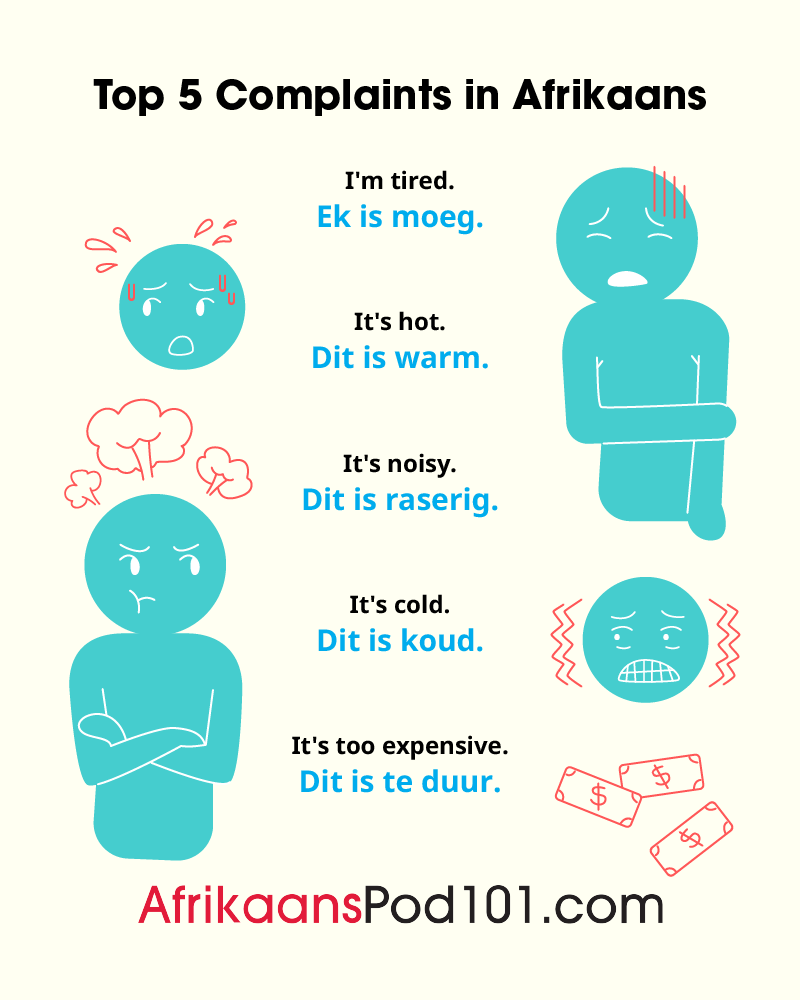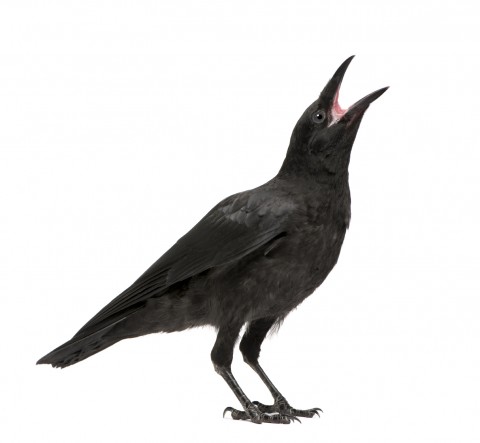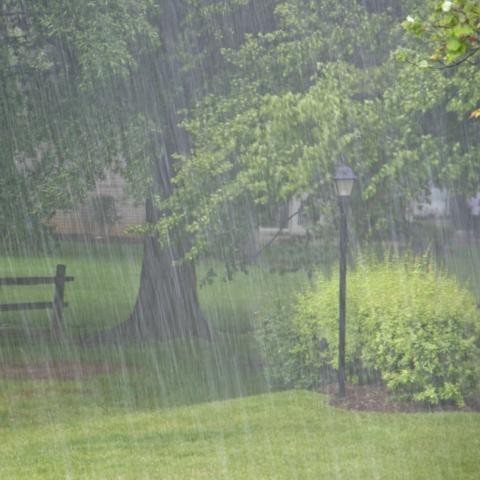Finding yourself in Afrikaans company, it can be difficult to start conversations if you’re not a native speaker. The weather is a classic conversation starter, as the weather is always there, everywhere and for everyone! In South Africa, the weather and climate are temperate and pleasant in most areas, and, aside from its breathtaking beauty, the country is a top tourist destination for this reason.
At AfrikaansPod101, we know how the weather can make or break a holiday or a stay! Therefore, we give you the most important facts about the weather South Africa experiences, and supply you with Afrikaans weather phrases. This way, you can start talking about weather in Afrikaans any time and plan your travels wisely.
But first—what’s the weather like where you live? Do you like it? Share with us in the comments!
Table of Contents
- Weather in South Africa: General
- AfrikaansPod101 Can Teach You South African Weather Phrases Easily!
1. Weather in South Africa: General
Before learning how to talk about South African weather in Afrikaans, keep in mind that climate and weather in Africa are diverse, as it’s a huge continent. You could find yourself in the sweltering desert in one part of it, but sweat in a completely different climate setting just a few hours’ flight away. Winters are mild in some areas, and bitterly cold in others. African weather is not known for a lot of snow, though; for that, you’ll have to look much further up north.
In South Africa, “weather” (weer) and climate follow the same pattern of diversity, with one exception—during winter, it freezes only in small areas, and then not for long. It also doesn’t snow in most parts of the country, except on the high mountaintops. Temperatures tend to be more moderate at the coast, with greater extremes in dry, inland regions. When packing, prepare for any type of weather!
1- Weather in South Africa: The Climate
South Africa, which is situated at the southernmost point of Africa, experiences weather that’s typical for the Southern Hemisphere, with its coldest days from June through August, according to Wikipedia. The warmest region during winter is the coast hugged by the Indian Ocean on the eastern side of the country, forming a big part of the Kwazulu-Natal province.
Climatic zones are distinguished by rainfall patterns. Winter rain falls in the Western Cape region, usually from May through August, and most often in a soft drizzle. (This pattern is changing, however; each year, the region seems to get more rain even during the summer months, and more torrential rainfall than before. This is still not that common, though.)
All other regions get their rain during summer and spring, except for the Eastern Cape, where it rains throughout the year. This province is also characterized by high humidity, which can make the summers almost unbearable. The average annual rainfall is 713 millimetres (28.1 in.). The northwest region, including the coast as well as large areas of the Western, Eastern, and Northern Cape, are all characterized by a dry, arid climate and landscape.
2- Weather in South Africa: Vocabulary to Memorize
In every language, there are words describing different weather conditions, and Afrikaans is no different. Also, in Afrikaans, weather terms are used as similes or metaphors to describe things other than the actual weather and climate. With these basic words about the weather in Afrikaans, you’ll have no trouble holding your own in a conversation!
Afrikaans: Son and sonskyn
Translation: “Sun” and ”sunshine”
Example sentence: Die son hang soos ‘n ryp, geel pomelo oor die woestyn. AND Sy het ‘n glimlag soos sonskyn.
Translation: “The sun hangs like a ripe, yellow grapefruit over the desert.” AND “She has a smile like sunshine.”
Afrikaans: Reën, reënbui, and reënerig
Translation: “Rain,” “a bout of rain,” and “rainy”
Example sentence: Die reën in Spanje bly meestal in die vlakte AND Die reënbui sal gou verbygaan AND Ek hou van reënerige weer
Translation: “The rain in Spain stays mainly in the plain” AND “This bout of rain will pass quickly” AND “I like rainy weather.”
Afrikaans: Donderstorm
Translation: “Thunderstorm”
Example sentence: Dit lyk of hy deur ‘n donderstorm getref is.
Translation: “It looks like he was hit by a thunderstorm.”
Afrikaans: Koue and hitte AND koud and warm AND koel
Translation: “Cold” and “heat” AND “cold” and “warm” AND “cool”
Example sentence: Die koffie is koud en onsmaaklik AND Die kar se hitte is te hoog. Also: Die oond is warm al lyk dit koel.
Translation: “The coffee is cold and bad” AND “The car’s heat is too high.” Also: “The oven is hot even though it looks cold/cool.”
Afrikaans: Nat and droog
Translation: “Wet” and “dry”
Example sentence: Die kleuter gee haar ‘n nat soen AND Sy humorsin is droog soos biltong.
Translation: “The toddler gives her a wet kiss” AND “His sense of humor is dry like jerky.”
Afrikaans: Wind and winderig
Translation: “Wind” and “windy”
Example sentence: Die wind waai waar hy wil op winderige dae.
Translation: “The wind blows where it wishes on windy days.”
Afrikaans: Wolk and bewolk/bewolkte
Translation: “Cloud” and “cloudy”
Example sentence: ‘n Enkele wolk maak nie ‘n bewolkte dag nie AND Jou gesig lyk bewolk.
Translation: “A single cloud doesn’t make for a cloudy day” AND “Your face looks clouded.”
Afrikaans: Sneeu and hael
Translation: “Snow” and “hail”
Example sentence: Dit gaan hael vandag, nie sneeu nie.
Translation: “It’s going to hail today, not snow.”
Afrikaans: Motreën
Translation: “Drizzle”
Example sentence: Motreën kan mens goed nat maak.
Translation: “Drizzle can properly wet one through.”
Afrikaans: Mis and mistigheid
Translation: “Mist” and “misty”
Example sentence: Die berghange is toe onder die mis.
Translation: “The mountainside is covered with mist.”
3- Weather in South Africa: Common Idioms to Memorize
Now that you know some handy weather words in Afrikaans, worm your way into any Afrikaans conversation with these lines. Be sure they correspond with the weather, though!
Afrikaans: Dis so warm dat die kraaie gaap.
Translation: “It’s so hot, the crows are yawning.”
Note: This idiom apparently has its origin in the behavior of crows when the weather is very hot and humid. The birds keep their beaks open to breathe, with their wings outstretched. This reportedly serves to keep their bodies cool and ventilated, also causing them to look like they’re yawning!
Afrikaans: Daar’s ‘n knyp in die lug.
Translation: “There’s a pinch in the air.”
Meaning: This phrase is used to indicate that it’s nippy outside—not quite cold, but getting there.
Afrikaans: Dit reën katte en honde!
Translation: “It’s raining cats and dogs!”
Meaning: This idiom has the same meaning as in English, which is most often used to describe a cloud burst.
Afrikaans: Jakkals trou met Wolf se vrou.
Translation: “Fox marries Wolf’s wife.”
Meaning: This jaunty Afrikaans idiom you’d use when it’s raining while the sun is peeking out! It’s a meteorological phenomenon that’s sometimes referred to in English as a “sunshower.”
4- Weather in South Africa: Common Weather Phrases to Memorize
In an Afrikaans weather conversation, it’s important to know how to describe the weather (and how you feel about it!). Here are some helpful phrases for doing so.
Afrikaans: Dit gaan vandag bewolk wees met verspreide reënbuie oor die kusgebied.
Translation: “It will be cloudy today with bouts of rain spread across the coastal areas.”
Afrikaans: Dis bibberend koud vandag!
Translation: “It’s shivering cold today!”
Afrikaans: Die temperatuur is dertig grade hier.
Translation: “The temperature is thirty degrees (celcius) here.”
Afrikaans: Die wind waai sterk or Daar’s ‘n sterk wind.
Translation: “The wind blows strongly” or “There’s a strong wind.”
Afrikaans: Ek kry koud!
Translation: “I’m cold!”
Note: You can replace koud with warm, which means “hot.”
2. AfrikaansPod101 Can Teach You South African Weather Phrases Easily!
When you enroll with us for a Lifetime Account, you get multiple benefits immediately at your fingertips! You’ll get thousands of lessons tailored to meet you at your level of language proficiency, enough to help yourself with straight away!
This includes topic-related, culture-specific Afrikaans vocabulary lists, like this one about the weather. In a simple, clear layout, our lessons are easily accessible, offering writing and audio recordings to make sure you learn the word as it’s pronounced by native Afrikaans speakers.
You’ll also gain access to the following, and so much more:
- A vibrant online community
- Free lessons on iTunes
- Free audio books
- Excellent free apps
- Free Word of the Day
- The 100 Core Afrikaans Word List
- An Online Afrikaans Dictionary
The value is simply unbeatable!
If you’re serious about your learning, we have several learning options to suit your pocket and your language needs. Therefore, look at our three different learning plans—affordable while still providing great value for your money.
If you’d like to fast-track your learning, why not choose the Premium Plus Plan, which gives you access to your own personal teacher and friendly host? These offers are sure to put sonskyn in your day, so enroll now!



















